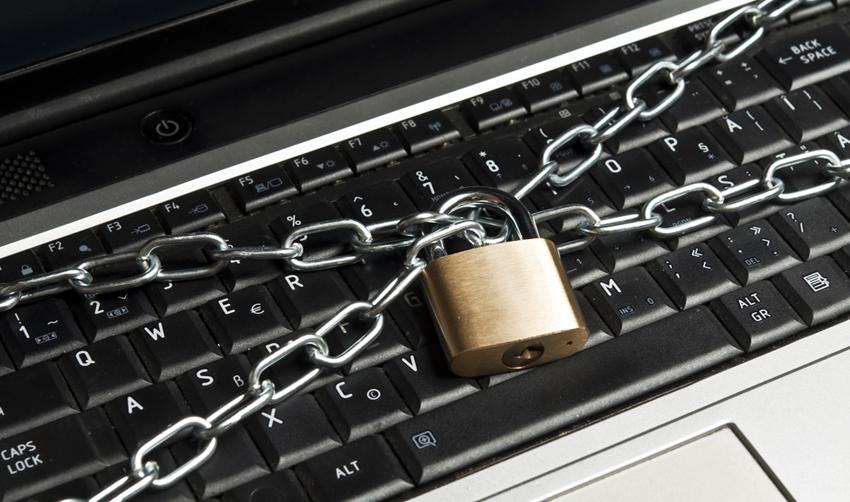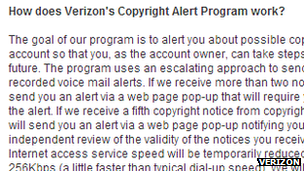
Five of the US leading internet service providers (ISPs) are taking part in the Copyright Alert System (CAS).
But organisers have indicated that once users received six alerts they would be considered outside the system. In other words, they are unwilling to change their behavior, so nothing else would be done.
A consumer can request an independent review administered by the American Arbitration Association within 14 calendar days of receiving an alert believed to be erroneous. There is a US$35 filing fee, which will be refunded if the challenge is successful.
Slowdowns
The scheme was supposed to launch last year, but organisers announced a last-minute delay, which they blamed on Hurricane Sandy disrupting final tests.
Verizon, Time Warner, Cablevision, Comcast and AT&T are all taking part in the initiative, which is co-ordinated by the Center For Copyright Information (CCI) – a group representing rights holders in the media industries.
“Over the course of the next several days… our content partners will begin sending notices of alleged peer-to-peer copyright infringement to ISPs, and the ISPs will begin forwarding those notices in the form of copyright alerts to consumers,” announced the CCI’s executive director Jill Lesser.
“Consumers whose accounts have been used to share copyrighted content over P2P networks illegally (or without authority) will receive alerts that are meant to educate rather than punish, and direct them to legal alternatives. And for those consumers who believe they received alerts in error, an easy-to-use process will be in place for them to seek independent review of the alerts they received.”
The ISPs are being left to determine their own responses to users who either ignore six warnings or fail to challenge the evidence against them and it is not yet clear exactly how each will act.
Verizon initially said in a FAQ that it would slow users’ access speed down to 256Kbps, “a little faster than typical dial-up speed” for up to three days – but later deleted the information from its site.
The original version can still be read via a snapshot Google took of the page. A spokeswoman was unable to explain the change at this time.

Verizon deleted specific details from its website about how it planned to handle suspected offenders
Time Warner said it planned to limit internet access to a pop-up showing a telephone number which the user must call. After a conversation with a customer service representative their service would be restored, it said.
The Torrentfreak news site has reported that leaked documents suggest AT&T would block access to some of the user’s most-visited sites until they had completed a copyright course.
UK delay
The Electronic Frontier Foundation (EEF) has raised several concerns about the scheme. It notes that the CCI states that “subscribers are responsible for making sure their internet account is not used for copyright infringement” and that the ISPs urge uses to restrict access to their wi-fi connection.
“This seems designed to undermine the open wi-fi movement,” said the EEF, referring to efforts to encourage users to share their wi-fi connections with others. It is suggested that free internet access can make locations more tourist-friendly and aid the emergency services.
“Open wireless is widely recognized to be tremendously beneficial to the public.”
Meanwhile the UK has favoured a proposed “three strikes” policy.
Under telecom regulator Ofcom’s draft code, users who receive three warnings within 12 months would have anonymous information about their activities passed to copyright holders which could then seek court orders to discover their identities.
The policy had been due to come into effect in March 2014, but has been delayed after a House of Lords committee queried whether the Digital Economy Act – which the code is part of – complied with Treasury rules.
The government subsequently withdrew the legislation. A spokesman for the Department for Culture Media and Sport was unable to say when it would be reintroduced.

The post ‘Six strikes’ Piracy Crackdown Begins in US appeared first on YouFrisky.